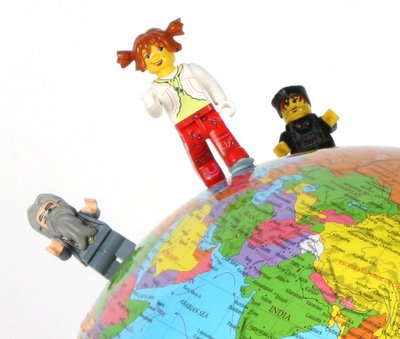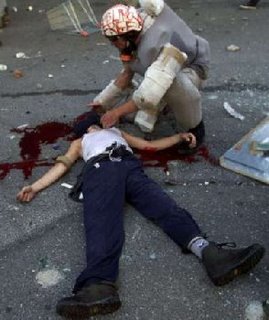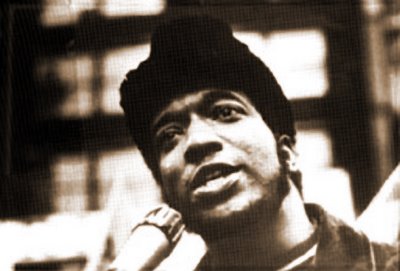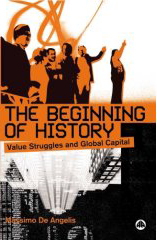
Notes from 20 November 2006
Some questions and problems.
First, measure. How do we *know* when we’re winning? We can set targets, but what sort of targets? How can we measure achievements within social movements? How *do* we measure achievements within social movements? Because we do always measure. We say: “Oh, that was a good meeting.” Or: “That thing we did wasn’t very effective [whatever ‘effective’ means], let’s try something else next time.” At Gleneagles, we celebrated the fact that we tied up the police for ages and prevented the Canadian delegation from reaching the summit at all on its opening day. This was an index of our success. This was measure.
But how useful is this type of measure? Measure must always take place in the *extensive* realm, the realm of the *actual*, the realm of what *exists* (De Landa). The extensive realm isn’t unimportant and it isn’t ‘bad’, but it isn’t the whole story; there’s more! How do we ‘measure’ the pleasure of eating apples, for example? In the extensive realm, all we can do is the count the number of apples. But living a life is not simply about calories and nutrition. It’s about freedom and potential. Our freedom and potential to produce, regardless of whether we do, in fact, produce. It may not be apples we actually desire. In terms of exploring out potential, transforming our subjectivities, developing our collectivity… well, these processes are immeasurable.

Here, when we are thinking about subjectivities and desire and potential, we have moved into the realms of the *intensive* and the *virtual*. It’s processes in the intensive realm – the movement of our desires and subjectivities — which constitute or produce the extensive. And the virtual realm is the field of potential, the field of what is possible or what might be possible.
A major problem for us (the second problem or question) is that it’s hard to see these intensive processes which constitute the extensive realm. In other words, we can observe the ‘actual’ world quite easily, but not the underlying movements. We can easily see poverty. We can look at statistics on life expectancy. We can even trace these back to ownership of the ‘means of production’ or the ‘division of labour’. But it’s more difficult to work out what’s going on underneath. This is certainly the case in ‘normal’ situations, when the world is in ‘equilibrium’. However…
… the intensive realm is far more apparent in far-from-equilibrium situations. At summit protests, for example, we can see more easily what social movements are made of. We can see commodities for what they are: dead. We get a sense that this is *real*, this is *life*. ‘Reality’ itself is punctured. Can also be punctured or ruptured by various other means. Not only ‘political’ or ‘cultural’ moments of excess, but also drugs or meditation perhaps. Sometimes, in these situations, things, the ‘way the world is’ – e.g., class inequality – just become blindingly obvious. *But*. Does this mean that ‘reality’, the extensive, is simply a shell? A shell which hides (and protects us from?) the intensive which lies beneath?
Third problem or question. The relation between the extensive and the intensive. Causality is not all one way, from intensive to extensive. Outcomes in the extensive realm do impact on the intensive realm and the field of possibilities. Victory of the Democrats in the US Congressional elections changes things for us. It alters the field in which we operate. E.g. there is no longer any point in organising around a “don’t invade Iran” position. Similarly, now the WTO, the IMF and the World Bank are all in crisis, struggles against these institutions seem to make less sense.
And this brings us back to the question of winning. For the crisis of the WTO and its cousins is our victory. (Remember Seattle in 1999 was a mobilisation against the WTO.) But it’s a victory in the extensive realm. And is this really what we mean by winning? Is it ‘our’ sort of winning? In 1999, these institutions appeared hegemonic, unquestionable, impossible to challenge. (‘There Is No Alternative.’) But we did challenge them. The very act of questioning the unquestionable, of practically imagining another world, is a victory in the intensive realm.
And we have to remember that the WTO is itself only a husk. It is less a ‘thing’, then a rigidified set of social relations. Its crisis means a certain web of social relationships are more fragile. But maybe those social relationships ‘moved on’, to organise the Olympics, for example. Which reminds us that capital also has an intensive realm – which it shares with us; they’re not separate; we are not separate from capital. More generally, the state is one of capital’s extensive faces. States attempt to harness or service capital’s movement. It’s easy to fall into the trap of thinking of social movements versus the state (or state actors, such as the police). But the state just a moment of class struggle (Bonefeld and Holloway). And when capitalist organisations/states are in crisis, it is also more possible to observe capital’s intensive realm. (Really all we are doing here is observing the ‘same’ far-from-equilibrium situation from two perspectives: our own and that of capital.)
Fourth problem/question: strategy. Can you place yourself to even a small degree in the future to think strategically. That is, can we immanently strategise? One example is the climate camp. Can we think about its possibilities, its potential, even if we don’t quite know what those possibilities or potential are? Or can we only think about strategy in the extensive realm?
In moments of excess — when everything is open, when we ask “how do we want to live?” — we just *be*: this is also when we *can* think strategically but don’t have to. This is where strategy becomes just *be*. Ineffability. Vocalising freezes and drags us back into realm of politics. Teleology. Strategy closes off. Victory in the intensive realm opens up possibilities. Burrowing… want more and more, wider and wider, without any sense of direction… different subjectivities experiment in different areas.
Fifth problem (restating the second). If the intensive is the realm of change, with the extensive the realm of stasis, how do we access it? Because when the intensive becomes visible, so does the virtual. And when we glimpse the intensive, we also ‘see’ (sense) connections to other processes/events. Resonance! But resonance is independent of consciousness. So struggles don’t have to be ‘aware’ of one another in order to resonate.
So how can we create right materials — tools or techniques — to facilitate intensity? We have to strategise because we can’t do everything. It’s about what seems possible. And that’s why strategy is different in intensive moments. But intensive states are quite fragile. At Gleneagles, there was resonance and consensus decision-making helped maintain consistency. Political animosity vanished (Zolberg: ‘Moments of Madness’). The bombing of July 7 shattered this state. How can we make intensive moments less fragile? Use refrains. Could argue that consensus decision-making is part of the extensive realm? But using it as a refrain means we can change it, use it, drop it. A tool. It doesn’t need to be formalised. Don’t need to use this tool for meeting with just four people, say. Unless it’s extensive, doesn’t exist for some people.
Final question/problem. How do we stay on the productive edge, which lies on boundary between the void and the extensive realm?
















